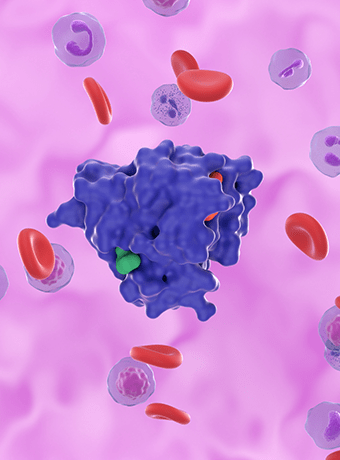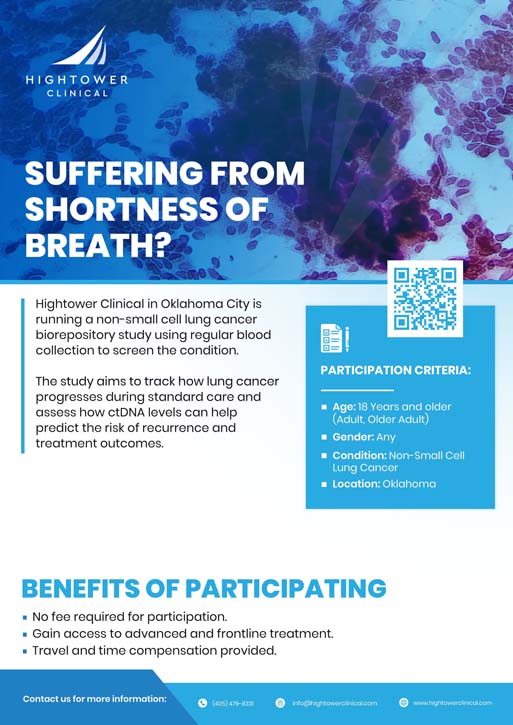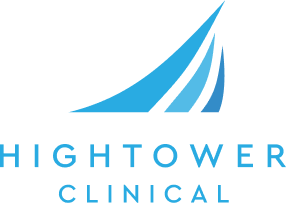NSCLC is a common type of lung cancer that occurs when cells in the lungs grow uncontrollably and form tumors.
Non-small cell lung cancer biorepository clinical trials in Oklahoma City, OK
Explore our non-small cell lung cancer biorepository clinical trials and participate in finding a better cure for this condition and advance lung disease research.
Enroll Now
Feeling difficulty in breathing?
Enroll in our non-small cell lung cancer biorepository research study today.
Non-small cell lung cancer (NSCLC) is the most common type of lung cancer, and it typically grows and spreads more slowly than other forms of lung cancer. There are treatment options available, however, the need to find a better and more effective cure option still remains.
Hightower is currently conducting non-interventional non-small cell lung cancer biorepository clinical trials in Oklahoma City, OK, for patients suffering with this condition. The study collects clinical and molecular health information, including longitudinal blood samples, alongside standard care and disease monitoring. The goal is to track the molecular changes in lung cancer during treatment and evaluate the use of ctDNA dynamics to predict risk of recurrence and treatment outcomes.
Participating in the clinical trial is entirely free and completely your choice.
*If you’re interested, simply fill out the form. Then, someone from our research team will get in touch to check if you are eligible for the study.*
Non-Small Cell Lung Cancer
| Study Name | Protocol Number | Sponsor |
|---|---|---|
| Non-Small Cell Lung Cancer | Tempus |
About Non-Small Cell Lung Cancer Biorepository Clinical Trials
Hightower is conducting NSCLC Biorepository study in Oklahoma City, OK, through a longitudinal blood collection method for screening this biorepository condition.
The NSCLC Study is a non-interventional clinical study aimed at gathering clinical and molecular health data from patients with non-small cell lung cancer (NSCLC). Participants will have their blood collected over time, alongside their regular treatment and disease monitoring.
The study aims to track how lung cancer progresses during standard care and assess how ctDNA levels can help predict the risk of recurrence and treatment outcomes.
*All study procedures, including the treatment and the investigational drug, are free of any charges, and you don’t need insurance to participate.*
*The study doctor will walk you through every step of the clinical trial and answer any questions you have about the treatment before you decide whether to join.*
Biorepository Clinical Study: What to Expect?
Once you agree to participate in our study, you’ll be asked to sign an Informed Consent Form that outlines all the study details. Our research team will guide you through the process and clarify your role in the trial. We encourage you to ask any questions you may have before deciding whether to join or withdraw from the study.
After you sign the consent form for biorepository-related clinical trials, we will collect your samples on each visit.
All care related to the study is free. Moreover, appointed physicians will perform thorough physical exams and screening throughout the clinical trial
Once you decide to enroll in the study, you will be provided with an Informed Consent Form.


Once you go through it and agree with the study details, you will be asked to sign the form. Our research team will assist you through every step of the detail and summarize your role in the trial. We encourage you to ask any questions before deciding to participate or withdraw from the process.
Once the study starts, there will be two groups or cohorts formed. One will include early-stage cancer patients while the second group will include participants with advanced stage cancer. Both groups will undergo blood sampling for biomarker profiling time after time.
Cohort 1 will consist of patients in the early stages of cancer (Stages I to IIIB) who can receive treatment aimed at curing the disease. It may involve surgery and possibly additional therapy before or after the surgery.
Cohort 2 will include patients with stage IV cancer who are receiving their first treatment with immunotherapy, either on their own or combined with chemotherapy.
All care related to the study is free. Moreover, appointed physicians will perform thorough physical exams or screening throughout the clinical trial.
Age
18 Years and older (Adult, Older Adult)
Gender
All
Condition
Non-Small Cell Lung Cancer
Current Status
Recruiting
What Happens in NSCLC?
Non-small cell lung cancer (NSCLC) is a chronic condition when abnormal cells in the lungs grow uncontrollably. They eventually form tumors that can affect lung function and may spread to other parts of the body.
Complications:
- Metastasis: NSCLC can spread to other organs like the brain, bones, and liver, and potentially cause more severe health issues.
- Respiratory failure: As tumors grow, they can block airways. It causes difficulty in breathing or lung collapse.
- Pleural effusion: The condition can lead to fluid buildup around the lungs, making breathing harder and requiring medical intervention.
Symptoms:
- Persistent cough: A cough that doesn’t go away or worsens over time.
- Chest pain: Discomfort or pain in the chest. Especially when you are coughing or breathing deeply.
- Shortness of breath: Difficulty breathing, which may get worse with physical activity.
- Unexplained weight loss: A sudden drop in weight without any other factor.
- Fatigue: Constant tiredness or weakness that affects daily activities.
Frequently Asked Questions
What are the symptoms of NSCLC?
Symptoms include a persistent cough, chest pain, shortness of breath, unexplained weight loss, and fatigue.
Is non-small cell lung cancer (NSCLC) curable?
NSCLC can be treated. Most probably, early detection offers better chances of successful treatment. However, it may not always be curable, especially if the disease progresses to advanced stages.
What happens during non-small cell lung cancer Biorepository clinical trials?
These trials involve collecting blood and tissue samples to study molecular changes in lung cancer. It helps researchers understand the disease better.
Why participate in non-small cell lung cancer Biorepository clinical trials?
Participating in these trials contributes to research that may lead to improved treatments and outcomes for future patients with lung cancer.




